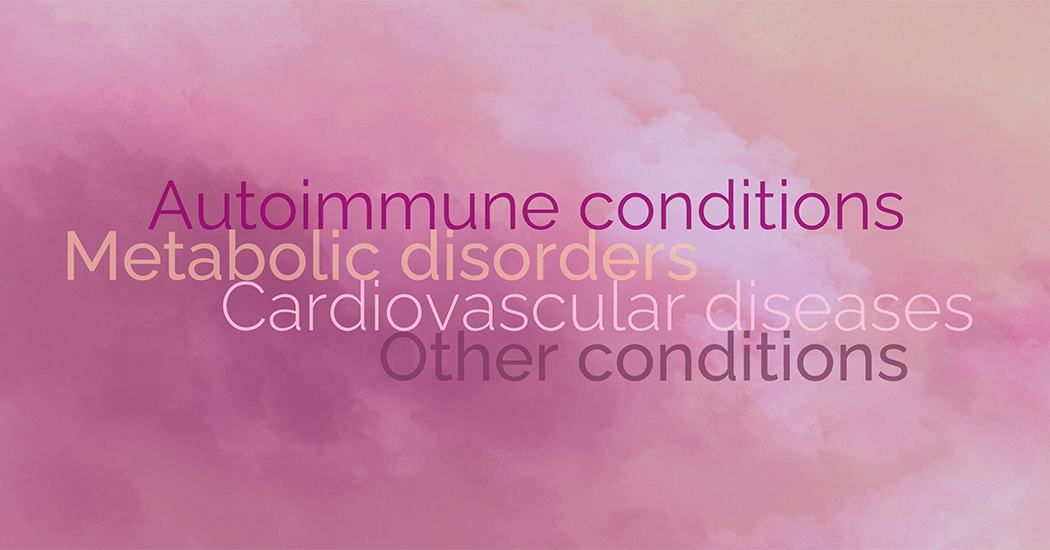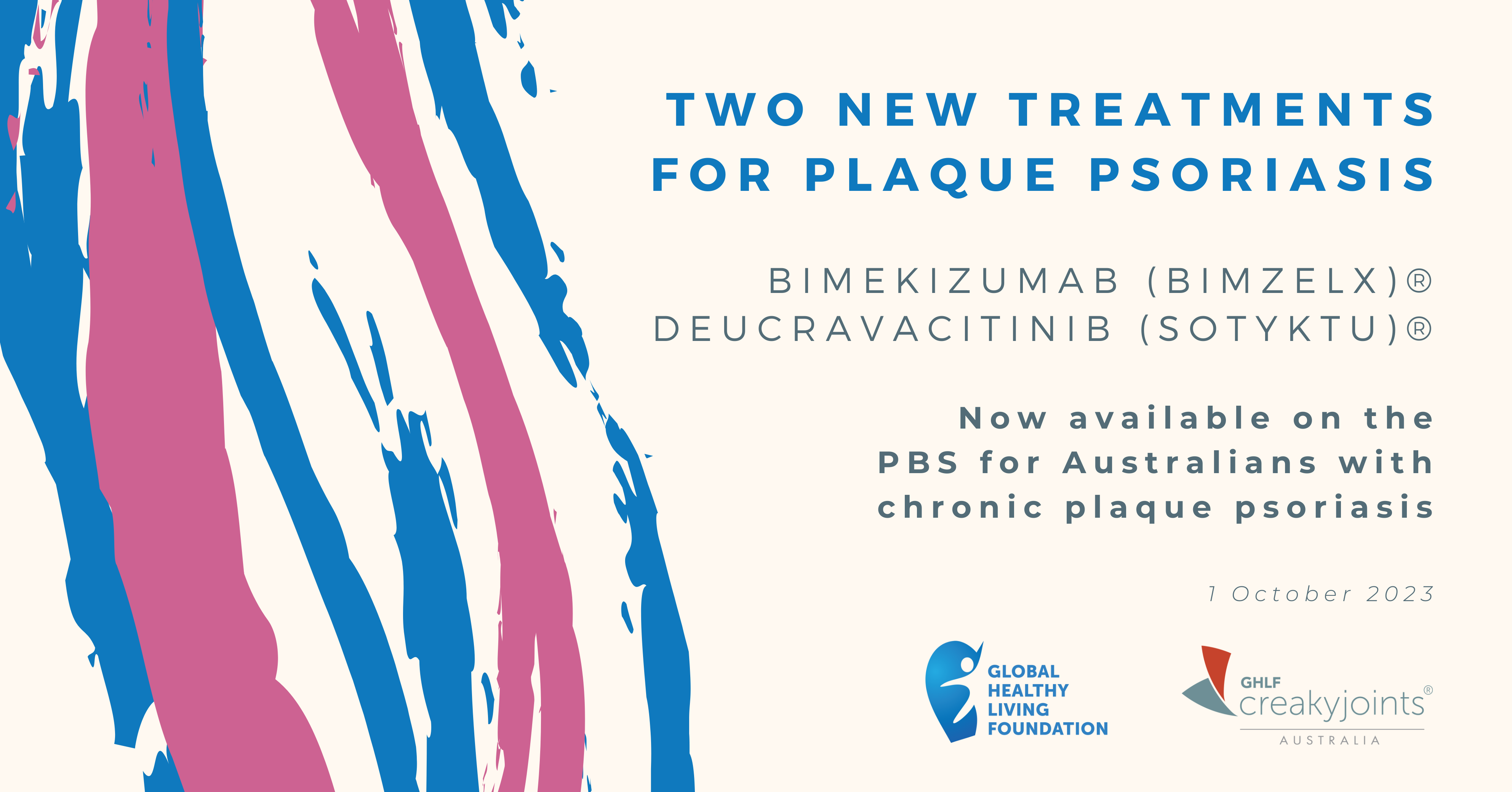PatientSpot helps you track your medications and symptoms, provides educational resources and can be used in health research. ....... Read more >

How to access the support you need to help you manage your psoriasis
How to access the support you need to help you manage your psoriasis
Living with psoriasis can be very isolating but that doesn’t mean you have to face it all on your own. There are many forms of support available to you, it’s a matter of knowing where and how to access them. We’ve created this comprehensive list of physical, mental, social and financial supports to help you live well with psoriasis.
Published 14 June 2023

This is the final article in our Psoriasis Wellness series. So far, we’ve covered ways to help you manage your psoriasis, including managing your fatigue, mental health and diet and exercise. These include tips on what you can do to feel better. In this final article, we’ll share how and where you can access the supports you need to help you manage your condition.
There’s no doubt living with psoriasis can be very isolating. Even if the people around you want to help, they won’t really understand what you’re going through unless they’ve been through it themselves. Living with a chronic condition can also be very costly and physically and emotionally draining.
It might seem that you have to deal with everything on your own. However, building your own support network and arming yourself with reliable and practical information is key to helping you to live as well as possible.
Sources of support
There are many forms of support available to you but not all of them are immediately obvious. We’ve outlined many of these below. Some of you may have already come across some of the services and resources we’ll cover but there’s a good chance you’ll discover other ways to access support that you weren’t aware of.
These sources are in no particular order. We suggest you pick out the ones that can help you in your current circumstances and come back to the others as needed.
Friends and family
The people closest to you are usually the first ones to turn to when you need a bit of help. Whether that’s providing emotional support, running errands for you or helping you financially they will generally do what they can to help you.
If you’re used to being independent, asking for help can be very hard and a matter of pride. Yet, turning to them could end up being more valuable than you ever thought possible. Think of all those in your family and current social circles and pick out those who you know you can rely on. When people offer their help, learn to accept their offer as graciously as you can.
“My advice is always to say yes to offers, be it food, coffee, driving to appointments etc. And don’t forget to ask for help either. People often don’t know how to help.” — Andrea M
Your healthcare team
Your healthcare team will generally be made up of medical professionals, allied health practitioners and people from the wider community. The person at the centre of your team is YOU. You get to choose who is on your team and what role they will play in supporting you.
The health professional you’ll usually encounter first and most often is your GP so aim to have one you like and who listens to you. They will usually be the central point of contact for the rest of your team and can help you access many other supports in your area. Your GP can also set up a Chronic Disease Management Plan and/or a Mental Health Treatment Plan (via the Better Access Initiative) to help cover the cost of relevant allied health services.
Dermatologists and rheumatologists are doctors who specialise in looking after people with psoriasis and psoriatic arthritis. They can confirm your diagnosis and help you choose and access the medical treatments that will benefit you most throughout your psoriasis journey.
Melinda Newnham lives with psoriasis and psoriatic arthritis. She is also an experienced nurse and the founder and administrator of the Australian Psoriatic Arthritis Warriors support group on Facebook. Melinda shared her top tip for communicating effectively with your doctors. “Learn about your illness and medications and have your questions at the ready. They (doctors) aren’t mind readers and not one of us is the same. You need to express your concerns and ask your questions to get the most out of the relationship and each appointment.”
Many other health professionals can play a role in your team. For example:
- Physiotherapists
- Exercise physiologists
- Nurses
- Pharmacists
- Dietitians
- Occupational therapists
Even though psoriasis is a physical condition, it can have a big impact on your mental and emotional health. Therefore, you may want a psychologist or psychiatrist on your team. They can help you examine the issues that concern you the most and help you develop strategies to cope with them.
“Managing a complex illness can be complicated, time-consuming and exhausting. Many people with one autoimmune condition end up with several, with different demands for management. I appreciate all the supports I receive that help me with my illness management.” — Penelope M
Community programs
Your local community is one place to find helpful, low-cost services.
If you don’t have a close circle of people around you now, consider joining a local group doing activities you enjoy, such as singing, gardening, sport or helping others. Local neighbourhood houses are good places to find such groups. If you can’t physically get to the venue, find those that offer to drive you to and from places or look for them online.
Community health centres are providers of a vast range of primary and allied health services and patient support groups run by healthcare professionals or trained support staff. They are not-for-profit organisations funded through a mix of council, state and federal government health programs. The services they offer will vary depending on the centre and practitioners they have available. Contact your local council for details of the community health centres in your area.
“I attend two group exercise classes a week and see a podiatrist and physiotherapist through a community health centre.” — Shirani W
Patient support programs
Two places you may not think of to find support to help you manage your condition are private health insurance agencies and pharmaceutical companies.
Private health insurance policies may cover benefits such as:
- Pre-admission and recovery support programs that give you access to qualified nurses, health coaches and other health professionals.
- Weight management programs.
- Medications not covered by Medicare.
- Chronic condition management programs.
Private insurance policies that include extras cover can help subsidise visits with allied health professionals such as physiotherapists, remedial massage therapists, dentists, podiatrists and more. If you find the cost of hospital cover or combined hospital and extras cover too high, you can purchase extras cover on its own.
If you take an advanced medication, such as a biologic or JAK inhibitor, the pharmaceutical company that supplies your medication may run a dedicated support program that you can access for free. (Check with your pharmacist or contact the pharmaceutical company for more information.) Such programs may offer:
- In-home visits by one of their nurses to show you how to inject your medication.
- A welcome pack that includes items such as sharps containers, travel wallets to keep your medication cold or booklets full of practical tips.
- Exclusive access to their patient support website which may feature information on your condition or “how to inject your medicine” videos.
- An app that helps you track your symptoms or sends you notifications to remind you to take your medicine.
- Healthy recipes and other practical lifestyle tips to help you live well with your condition.
Health consumer or medical organisations
Medical peak bodies generally support healthcare professionals in their target field. For example, they include the Australasian College of Dermatologists (ACD), the Royal Australian College of General Practitioners (RACGP) and the Australian Rheumatology Association (ARA). Some also provide resources for consumers such as the ACD’s Help, Helps Resource Hub or the ARAs For Patients, section.
Health consumer organisations (sometimes also referred to as peak bodies) are not-for-profit organisations that support and advocate for health consumers with common types of conditions, locations or concerns. The larger ones often have paid staff and can employ (or offer voluntary positions to) people with lived experience but may also employ others with a professional interest in the field.
Such organisations support health consumers by providing relevant and reliable information about conditions and treatments through websites, social media platforms, printed literature, awareness campaigns and more. Some also represent their respective communities by lobbying governments to improve or expand their health policies. Others may help to organise peer support groups or health research projects.
Consumer organisations for Australians with psoriasis or related conditions include:
- Global Healthy Living Foundation Australia (GHLF Australia)
- Psoriasis Australia
- CreakyJoints Australia (for psoriatic arthritis)
- Musculoskeletal Australia (for psoriatic arthritis)
- Arthritis Australia (for psoriatic arthritis)
- Consumers Health Forum of Australia (for general health system resources and advocacy)
Karen Ridsdale is the president of Psoriasis Australia. The organisation strives to represent around 1.6 million Australians with psoriasis. “I’m passionate about making sure that people with our disease, in all its forms, are given a voice and are also supported,” she said.
“Most people with chronic illness are quite amazing and tough, resilient people. We want to help people come out from the bushes and shadows and just be proud of who they are,” she added.
Peer support groups
Peer support groups differ from patient support organisations in that they are usually run by patients (who are generally volunteers).
They are often set up by individuals or small groups of consumers and fill a support gap not provided by healthcare providers or health organisations. That is the opportunity to connect with other people in similar situations who can relate to each other’s experiences.
Jo Mohan started the Psoriasis and Psoriatic Arthritis in Australia Facebook page (and later, a closed group) when her psoriasis was out of control and she was at a very low point in her life. “My family are nice, but they didn’t really understand what I was going through because they haven’t been through it themselves,” she said.
“I started a Facebook page in case another person was sitting at home wondering if there was anyone else out there feeling like this,” she said. “If you know that there’s even one more person going through the same thing as you, you feel a bit better. It is still bad but you don’t feel like you’re alone.”
You can connect with others with psoriasis, via local or national support groups and online networks, to share experiences and discover what others are doing to manage their condition. Even if you are in remission, it’s great to stay connected to a community to discover new tips and offer encouragement to people who are newly diagnosed.
“I attend a peer support group and I love it. I have made many friends and learned a lot even after having my condition for a long time.” — Shirani W
National Disability Insurance Scheme
The National Disability Insurance Scheme (NDIS) is a government scheme that provides extensive support for Australians with a disability, their families and carers. These days, the term “disability” is often used to refer to the inability to function in daily life to the same extent that an otherwise healthy person can.
The NDIS is designed to help people get the help they need to function as well as possible in society. It provides funding for, and assistance with, accessing a range of community supports. The NDIS is not a welfare scheme and it operates independently of both Centrelink and Medicare.
The NDIS is not income tested, either, so it won’t affect Centrelink income support payments such as the Disability Support Pension. It is possible to work full-time and still receive NDIS support.
To be eligible, you must:
- Be under 65 years of age
- Be an Australian citizen OR a Permanent Visa holder OR hold a Protected Special Category Visa AND have a permanent condition that significantly affects how you take part in everyday activities.
- Have a disability caused by a permanent impairment.
Disabilities may include physical and mental health conditions and intellectual disabilities. Your eligibility is determined, not only by the condition itself, but how long it will last and how it impacts your life (your functional capacity). Therefore, someone with psoriasis or psoriatic arthritis may be eligible while someone else with the same condition may not. Each person is assessed on their own capabilities and needs.
Note that, while your condition must be permanent, it does not have to affect you every day. For example, if your condition is recurring or in remission, you may still receive some support.
Financial support
While many of the above supports are free or low cost, it can still be very expensive to manage your psoriasis effectively. The costs of medication and health appointments alone can be hundreds or even thousands of dollars each year. However, in addition to the financial supports we’ve already covered, you may also be eligible for other supports such as the Pharmaceutical Benefits Scheme safety net or a Mobility Allowance from Centrelink.
You will find a comprehensive list of government and community supports for people with chronic health conditions on the CreakyJoints Australia website.
Our final piece of advice comes from one of our community members.
“See as many support people as you can as you don’t know what could work best for you. Try everything. Don’t give up.” — Andrea M
Remember, you might have psoriasis but it doesn’t have you.
If this content has raised feelings that concern you, visit the Lifeline website or call 13 11 14.
This information should never replace the information and advice from your treating doctors. It is meant to inform the discussion that you have with healthcare professionals, as well as others who play a role in your care and well-being.
If you find this exclusive Psoriasis Wellness series helpful, please consider inviting others to sign up by sharing this link with them: ghlf.org.au/psoriasis-wellness-series




This Post Has 0 Comments